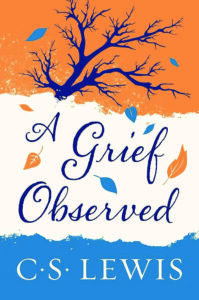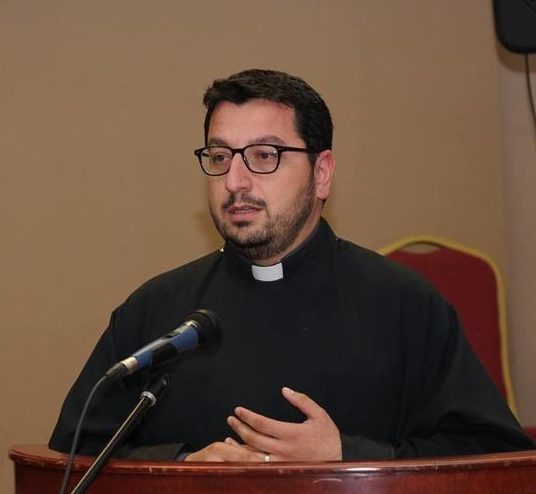During our drive from Long Island, New York to Indian Orchard, Massachusetts last Saturday, the nonstop rain served as a poignant reminder of the tragedy at hand to my wife and me. By now, most Armenians have heard about the tragic deaths of Sima Setian Pariseau and her son Dylan Pariseau from St. Gregory Armenian Apostolic Church in Indian Orchard and how this tragedy has left the entire community devastated. In collaboration with the Armenian Prelacy, the pastor and the Board of Trustees invited the community to a bereavement workshop, which I was asked to facilitate.
I have conducted bereavement workshops at my parish in the past and have supported individuals and families through grief in my clinical practice. While I am familiar with most resources used in this field of counseling, I felt the need to be well-prepared for last week’s workshop. I scheduled specific blocks of time during the week to do some reading and research, but each time I sat down to work, I felt like my efforts were fruitless. Last Friday, I felt anxious about my lack of readiness for the workshop and spent some time in the sanctuary of St. Sarkis Church, praying and reflecting. Instead of focusing on the material, I centered my thoughts on my role as a pastor. Previously, wanting to learn more about my pastoral identity, I read that a pastor’s role is to walk with his parishioners through their happy and challenging times, which is a privilege, and to be present with them as they experience both joy and raw emotions. This realization brought me clarity. I understood that my goal was not to teach Sima and Dylan’s family members and St. Gregory’s parishioners any lessons or techniques on how to grieve, but rather to be present with them, observe their grief and pain and walk with them for a short mile on their long journey of bereavement.

The workshop was titled “A Grief Observed,” which I borrowed from C.S. Lewis’ book on grief. Interestingly, when people talk about C.S. Lewis, they usually mention The Chronicles of Narnia, Mere Christianity or The Great Divorce, but A Grief Observed is not as well-known. This is because Lewis did not intend for it to become popular. In fact, he used the pseudonym N.W. Clerk in the original publication to avoid drawing attention to himself. A Grief Observed is a collection of Lewis’ reflections on his experience with grief following the death of his wife. It is compiled from the notebooks he used to vent and explore his grief. Some say that Lewis, the author of The Problem of Pain, who intellectually wrestled with the notion of why a good and all-powerful God would allow pain in the world, experiences the magnitude of pain at a visceral level in A Grief Observed, as he writes: “We were promised sufferings. They were part of the program. We were even told, ‘Blessed are they that mourn,’ and I accept it. I’ve got nothing that I hadn’t bargained for. Of course, it is different when the thing happens to oneself, not to others, and in reality, not imagination.”
Previously, wanting to learn more about my pastoral identity, I read that a pastor’s role is to walk with his parishioners through their happy and challenging times, which is a privilege, and to be present with them as they experience both joy and raw emotions.
We started the first session with the story of Cain and Abel from the Book of Genesis. This is one of the shortest stories in the Scriptures, and there is not much context, but it touches on the core of our existence on many levels.
God is aware that Cain is unhappy and counsels him: “Why are you angry, and why has your countenance fallen? If you do well, will you not be accepted? And if you do not do well, sin is lurking at the door; its desire is for you, but you must master it” (Genesis 4:6-7). These words tell us that we are responsible for the way we feel, and if we don’t have mastery over our dark and evil thoughts, sin will rule and ruin our lives.
Cain fails to look inside and identify ways to improve and be accepted by God. He murders the one who did better and was accepted by God — his own brother Abel. When God confronts Cain, he shrugs, “Am I my brother’s keeper?”
Yes, we are. We all are our brothers’ keepers, because we are created in God’s image, and God is the author of life. We do not get to decide when someone’s life should be terminated, because it is a sin that offends God’s image, and we are not the authors of life. To be a “brother’s keeper” means to respect life’s sanctity from conception to natural death.
After this introduction, the dialogue with the congregants started to flow organically. Every shared experience increased the magnitude of the pain, yet the sense of love and compassion, which was the glue bringing the community members together, became more visible. I used basic counseling skills including paraphrasing, encouraging and probing to facilitate the conversation, but I also tried to be mindful of my emotions. In my professional training, I was told that our role as counselors is similar to that of lifeguards; we ought to extend our hand and help people who are drowning, while ensuring that we don’t drown. Well, I can’t say I maintained that posture, as I felt like I was drowning in emotions repeatedly, just from observing and being present with the pain everyone in the sanctuary was feeling.
I selected the cross of Jesus as the main topic for the second part of our workshop. We drew parallels between the Calvary and St. Gregory’s community members in the aftermath of this tragic event. We focused on the seven last words of Christ on the cross for our discussions and reflections. As Jesus hung on the cross, he spoke seven last phrases. These phrases cover different themes including forgiveness, salvation, relationship, abandonment, distress, triumph and reunion. These powerful messages served as our guide for contemplation and reflection.
After our workshop, we prayed the evening service prayers of the Armenian Apostolic Church. As we drove back home, the sun was shining, and the dark clouds had disappeared. I prayed for Sima and Dylan’s family members and the St. Gregory’s community, asking that they would see God’s light in the midst of their current darkness.
According to grief work pioneer Elizabeth Kubler-Ross, there are five stages of grief: denial, anger, bargaining, despair and acceptance. It is important to note that acceptance does not mean finding silver linings or celebrating but rather recognizing and coming to terms with the new reality. While secular grief work stops at acceptance, Christians have the added strength of hope. For Christians, hope is not just an expectation of good things to come or magical thinking. Instead, it is rooted in the person of Jesus Christ, who conquered death through His own death and resurrection, showing that death and evil do not have the final word.
I hope that this understanding of hope brings peace to every broken heart.



Der Nareg, thank you for sharing your gifts with our Indian Orchard community.